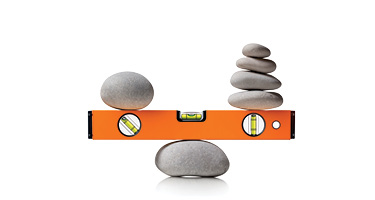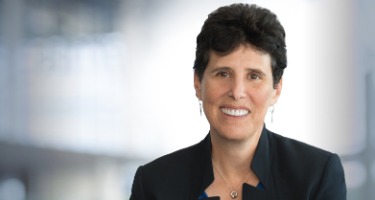With the recent and pending changes to the U.S. Supreme Court’s composition, many lawyers are speculating on how a new balance of power in the house will affect future decisions concerning abortion, gay rights, and immigration rights. These are important subjects, though they are not the only ones deserving of our attention. Potential changes to the U.S. patent system should not go unexamined.
Between 2010 and 2015, the Supreme Court issued a series of judicial opinions seriously impacting the country’s patent laws. While it is generally known that patentable inventions must be new, useful, and non-obvious, the court invoked the rarely used “patentable subject matter” requirement under 35 U.S.C. §101 to invalidate certain claims of issued patents—thus rocking the software and life sciences industries. A look at the Supreme Court’s voting history on four crucial patent cases might give us an idea of where this area is headed in the years to come.
Considering the cases
In Bilski v. Kappos (2010), the Court determined that a business method for hedging risk was an abstract idea, invalidating the claims under 35 U.S.C. §101 on the basis that abstract ideas were unpatentable subject matter. Justice Kennedy delivered the unanimous opinion of the Court with Justices Breyer, Scalia (in part), Stevens, Ginsburg, and Sotomayor concurring.
Two years later, in Mayo v. Prometheus, the Court decided that a method for optimizing drug dosages was directed to a law of nature, thereby falling within the realm of unpatentable subject matter. Justice Breyer delivered the unanimous opinion.
Shortly after Mayo, in AMP v. Myriad Genetics, the Court held that claims directed to isolated DNA (genes) associated with an increased risk of breast cancer “fell squarely within the law of nature exception” and were not patent eligible even though the U.S. Patent and Trademark Office (USPTO) had routinely granted similar claims to isolated biological substances for over 20 years. Justice Thomas delivered the unanimous opinion with Justices Scalia concurring (in part).
Finally, in Alice v. CLS (2014), the Court unanimously decided that claims to a computer-implemented process, computer system, and computer-readable medium for mitigating settlement risk were patent ineligible and invalid because they were directed to the abstract idea of intermediated settlement. Justice Thomas delivered the unanimous opinion with Justices Sotomayor, Ginsburg, and Breyer concurring.
Can the Supreme Court reduce rights?
In these decisions, the Supreme Court narrowed the scope of patentable subject matter. Many patent lawyers criticized these decisions, asserting that the Court was attempting to set public policy that reduced patent rights—a role reserved for the legislature. The Court’s decisions not only provided a new defense to patent infringement by challenging the validity of existing patents, but also changed the standards for allowing patent claims in the US Patent & Trademark Office. In the months and years following these decisions, the USPTO issued memos and conducted training to provide “guidance” to U.S. patent examiners on how to identify and reject claims directed to patent ineligible subject matter in accordance with the Court’s opinions. This put nearly every diagnostic method and isolated biomolecule claim at risk. American businesses quickly felt the economic effects. Technology companies built around previously-patentable subject matter saw their patent portfolios collapse as patent claims directed to newly declared “patent ineligible” subject matter were rejected by the USPTO or held “invalid” by the courts.
Predicting positions
Although we hold U.S. judges to a high standard of impartiality, we can often predict some judges’ decisions based on judicial history. Voting history, as well as one’s concurring and dissenting opinions, having a liberal or conservative bent is often used during the judicial selection process. When a Supreme Court justice leaves the bench, the President frequently nominates a replacement, who the Senate must confirm by majority vote, who favor the goals of the prevailing political party—conservative presidents frequently nominate conservative justices and vice versa.
Political analysts speculate that Justice Kennedy’s July 31 announcement to retire occurred at President Trump’s request because many speculate that Democrats will take over the Senate after the 2018 fall elections and will block any future Court nominations Trump makes. Justice Kennedy, who frequently cast the deciding vote in close Court decisions, is known as a “liberal” conservative. Trump’s nominee to replace Kennedy, Judge Brett Kavanaugh, clerked for Justice Kennedy, as did Gorsuch, and is described by political analysts as “very” conservative. Assuming that Kavanaugh is confirmed as Kennedy’s replacement on the bench and Gorsuch votes more conservatively than Scalia, the Supreme Court should balance in favor of conservative decisions. This is relevant in closely decided, high profile cases such as those that involve abortion and gay rights. But it is much less important in unanimous decisions.
Based on the Supreme Court’s voting histories in the four patent cases described above, the replacement of Scalia and Kennedy by Gorsuch and Kavanaugh will unlikely shift the Court’s vote in favor of broader patent rights when deciding subject matter patentability. Those businesses adversely affected by former Supreme Court decisions on eligible subject matter will need to rely on a conservative, pro-business, pro-patent Congress to enact legislation that expands patent rights.
--------------
Jamie Graham is a partner with Kilpatrick Townsend with over 30 years of experience as a biotechnology and chemistry patent attorney. She helps companies, universities, and government entities obtain, investigate, acquire, license, sell, defend against, and enforce patents in the life sciences and chemical technologies in the US and abroad. Jamie obtained an undergraduate degree in Molecular Biology from Wellesley College, an advanced degree in Immunology from Emory University, and has been in-house patent counsel for a pharmaceutical company, an adjunct professor of Intellectual Property and an expert witness in patent disputes.



















